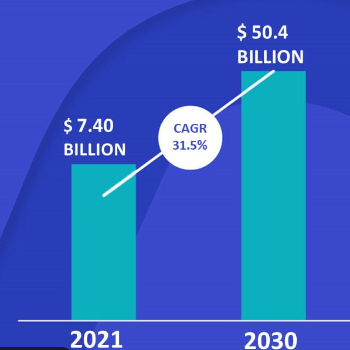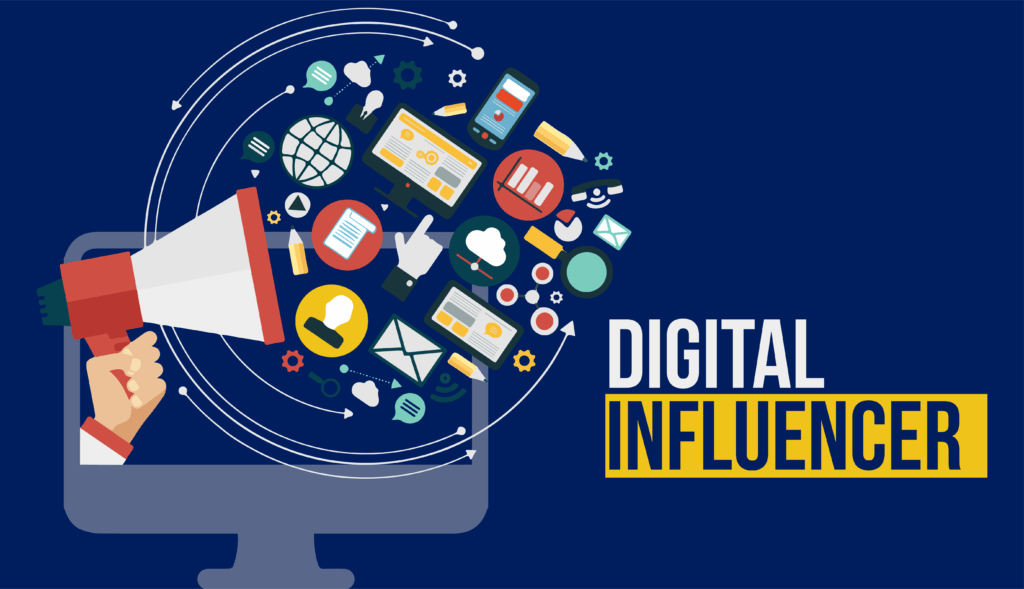The Rise of Influencer Marketing in A Digital World. In recent years, influencer marketing has emerged as a dominant force in the advertising industry, revolutionizing how brands connect with their target audiences.
This comprehensive article delves into the definition, evolution, mechanics, benefits, challenges, and future of influencer marketing, providing insights into its strategic importance and best practices for businesses. From social media platforms to traditional media outlets, influencer marketing has permeated various channels, shaping consumer behavior and reshaping the marketing landscape.
“According to a report by Influencer Marketing Hub, influencer marketing has grown exponentially, becoming a vital component of modern marketing strategies across industries.”
Definition and Explanation of Influencer Marketing
Influencer marketing involves collaborating with individuals who have a significant following and influence over a specific audience segment to promote products, services, or brands.
These influencers leverage their credibility, expertise, and social reach to endorse or recommend products, thereby influencing the purchasing decisions of their followers.
Historical Evolution: From Celebrity Endorsements to Micro-Influencers
While celebrity endorsements have long been a staple of marketing campaigns, the rise of social media has democratized influence, giving rise to a new breed of influencers.
From macro-influencers with millions of followers to micro-influencers with smaller, niche audiences, brands now have a diverse array of personalities to choose from when crafting their marketing strategies.
Impact of Social Media Platforms on Influencer Marketing
Social media platforms such as Instagram, YouTube, TikTok, and Twitter have played a pivotal role in the growth of influencer marketing.
These platforms provide influencers with a direct line of communication with their followers, enabling authentic and engaging content that resonates with audiences on a personal level.
Statistical Evidence of Influencer Marketing’s Growth
The exponential growth of influencer marketing is evidenced by staggering statistics.
According to recent studies, businesses earn an average of $5.20 for every dollar spent on influencer marketing, with 89% of marketers reporting that influencer marketing ROI is comparable to or better than other marketing channels.


How Influencer Marketing Works and Its Strategic Importance
Mechanics of Influencer Marketing Campaigns
Influencer marketing campaigns typically involve several key steps, including identifying relevant influencers, negotiating partnerships, developing creative content, and measuring campaign performance.
These campaigns can take various forms, such as sponsored posts, product reviews, giveaways, or influencer takeovers.
Aligning Brand Values with the Right Influencers
Successful influencer collaborations hinge on aligning brand values with the ethos and audience demographics of chosen influencers.
Authenticity and relevance are paramount, ensuring that the partnership feels organic and resonates with the influencer’s followers.
Crafting Influential Messages with High Engagement Rates
Effective influencer marketing relies on crafting compelling messages that drive engagement and inspire action.
Whether through captivating visuals, authentic storytelling, or interactive content, influencers have the power to captivate audiences and foster meaningful connections with brands.
Long-Term Benefits of Influencer Collaborations
Beyond immediate campaign results, long-term partnerships with influencers can yield lasting benefits for brands.
Building rapport and trust over time can lead to sustained brand advocacy, increased customer loyalty, and ongoing exposure to new audiences.
The Benefits of Leveraging Influencer Marketing
Enhanced Brand Awareness and Reach
Influencer marketing enables brands to extend their reach and tap into new audience segments that may be difficult to reach through traditional advertising channels.
By leveraging the social capital of influencers, brands can amplify their message and increase brand awareness.
Boosting Credibility and Trust through Social Proof
Influencers serve as trusted voices within their respective communities, lending credibility and authenticity to endorsed products or services.
Through social proof and personal endorsements, influencers can sway consumer perceptions and foster trust in brand offerings.
Cost-Effectiveness of Influencer Campaigns vs. Traditional Advertising
Compared to traditional advertising channels, influencer marketing often offers a higher return on investment (ROI) and lower acquisition costs.
By targeting niche audiences with tailored content, brands can maximize their marketing budgets and achieve measurable results.
Targeted Messaging and Improved ROI Measurability
Influencer marketing allows for precise audience targeting, enabling brands to deliver tailored messages to specific demographics or interest groups.
Additionally, the trackability of digital platforms provides marketers with real-time insights into campaign performance, facilitating data-driven decision-making and optimization.

Understanding the Challenges and Risks of Influencer Marketing
The Credibility Gap: Endorsers vs. Authentic Advocates
One of the primary challenges in influencer marketing is navigating the credibility gap between paid endorsements and genuine advocacy.
Consumers are increasingly wary of inauthentic promotions, emphasizing the importance of transparency and authenticity in influencer partnerships.
Navigating the Legal Landscape: Disclosure and Transparency Concerns
Regulatory bodies such as the Federal Trade Commission (FTC) have established guidelines requiring influencers to disclose paid partnerships and sponsored content.
Ensuring compliance with these regulations is essential for maintaining trust and transparency in influencer marketing campaigns.
Potential for Influencer and Audience Mismatch
Mismatched partnerships between brands and influencers can result in ineffective campaigns and damage to brand reputation.
Thorough vetting and alignment of values, audience demographics, and brand messaging are essential to mitigate the risk of misrepresentation or dissonance.
Risk of Dependence on Platforms and Algorithm Changes
Relying solely on social media platforms for influencer marketing carries inherent risks, including algorithm changes, platform shutdowns, or fluctuating engagement metrics.
Diversification of marketing channels and building direct relationships with influencers can help mitigate these risks.
Shaping the Future of Marketing: Industry Predictions and Best Practices
Predicting Trends in Influencer Marketing for the Coming Years
As influencer marketing continues to evolve, several trends are poised to shape its future trajectory.
These include the rise of nano-influencers, increased focus on authenticity and relatability, and the integration of emerging platforms such as virtual reality (VR) and augmented reality (AR).
Incorporating Authenticity and Storytelling in Marketing Strategies
Authenticity and storytelling will remain central to effective influencer marketing strategies, as consumers crave genuine connections and meaningful narratives.
Brands that prioritize authenticity, transparency, and emotional resonance are likely to resonate with audiences and drive engagement.
Best Practices for Vetting and Working with Influencers
When vetting influencers, brands should consider factors such as audience demographics, engagement metrics, content quality, and alignment with brand values.
Establishing clear expectations, communication channels, and contractual agreements is crucial for successful collaborations.
Measuring Success and Iterating on Influencer Campaigns
Measuring the success of influencer marketing campaigns requires a combination of quantitative metrics (e.g., reach, engagement, conversion rates) and qualitative feedback (e.g., audience sentiment, brand perception).
Analyzing campaign performance enables marketers to identify areas for improvement and refine future strategies iteratively.
In conclusion,
In conclusion, influencer marketing has become a pivotal tool for brands in the digital age, facilitating authentic engagement with consumers and driving measurable results.
As outlined in this article, its evolution from traditional celebrity endorsements to the rise of micro-influencers and the impact of social media platforms underline its significance in contemporary marketing strategies.
While influencer marketing offers numerous benefits, including enhanced brand awareness and targeted messaging, it also presents challenges such as navigating the credibility gap and ensuring compliance with regulations.
Nonetheless, by embracing emerging trends and adhering to best practices, brands can leverage influencer marketing to cultivate meaningful connections and achieve sustained growth in today’s dynamic business landscape.
Earl
Email; earl@entrepreneurprograms20.com
